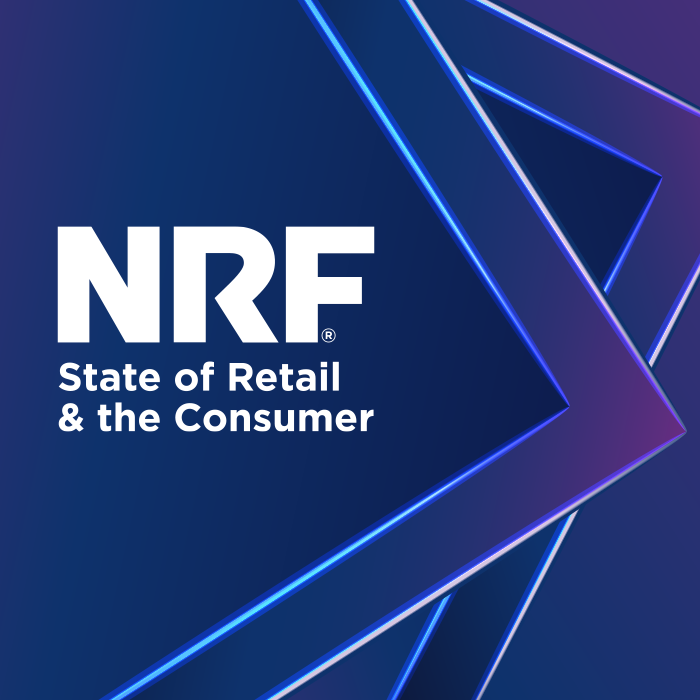Small businesses fight to survive amidst tariff uncertainty
)
From Hueytown, Ala., to Los Angeles and everywhere in between, small businesses are the fabric of local communities across the United States. Small businesses are also integral to the retail industry, accounting for 98% of all retailers and supporting more than 13 million American jobs. Unfortunately, they are also more susceptible to the harmful impacts of tariffs.
Tariffs threaten the American Dream
Record-high tariffs threaten the American Dream by jeopardizing the ideals of freedom and opportunity. Learn more.
U.S. businesses of all sizes rely on longstanding relationships with international suppliers to be able to provide their customers with a variety of high-quality goods at affordable prices. The uncertainty surrounding tariffs is creating major disruptions, particularly as businesses prepare for the holiday season.
The National Retail Federation recently hosted small business owners from around the country to highlight to Capitol Hill lawmakers the dire situation many are now facing because of tariffs and their ongoing uncertainty.
Unintended consequences
While tariffs are often intended to protect domestic industries, small businesses are finding they are also creating unforeseen and surprising impacts across various sectors.
Located in Hueytown, Ala., Gaines Family Farmstead has been a premium pet shop for three generations; owner Dewar Gaines says he has invested significantly into a segment of the business that has seen tremendous growth. “For now, we’re absorbing the losses,” he says. “If the tariffs persist, we may be forced to shut down this seven-figure portion of our business.”
Ross Harrow, owner and CEO of Los Angeles bakery Flour Shop, says the costs incurred from his suppliers of premium ingredients are being passed along to him, forcing him to shrink his menu. “Unfortunately, a bunch of our products — that we’ve worked hard on and we think are great products — have had to be paused. We just don’t make them anymore.”
Stifling innovation
Small businesses are the embodiment of the American dream, working to fill a void in the market or solve a problem. For those already navigating a challenging landscape, these additional costs and uncertainties are restraining their ability to invest in research and development, offer new products and create jobs.
Jerry Tsai and Phillip Guerra launched The Happy Start in Columbus, Ohio, with the mission of offering affordable, educational toys to help babies meet developmental milestones. They are working with some of the top pediatric hospitals in the U.S., but the tariffs have limited their ability to create new products. “The tariffs are forcing us to significantly slow down our R&D on new product innovation, delay inventory replenishment and consider price increases, which is the last thing we want to do,” they say.
Mohamad Sam, a former engineer in Katy, Texas, left his corporate job to start Purifyou, which offers glass bottles and other eco-friendly products. “We already face significant hurdles to successfully start a new business,” he says. “These tariffs are making it even harder for small businesses, and the jobs and innovation they bring to the U.S., to survive.”
Last resorts
With no resolution to the tariffs in sight, many small business owners are finding themselves pushed to the brink, resorting to desperate measures to keep their operations afloat.
Jared Hendricks from Christmas decor shop Village Lighting Co. in West Valley, Utah, typically orders his specialty products, which are only made in China, a year in advance. “These tariffs have forced me to use financing leveraged against my home just to pay the taxes,” he says. “The impact has been near catastrophic, and without relief, our business may not survive.”
Jess Nepstad, CEO of Planetary Design in Bonner, Mont., says the tariffs “have been more difficult to manage than COVID.” Too small to shift sourcing, he has now been forced to change direction and focus on growing his business outside of the U.S. “Why would we move from the best quality and best price,” he says, “offer less to our end consumer and retail partners, and potentially damage our brand?”
Speak out against tariffs
Congress must hear from those of us who pay tariffs — America's consumers, small businesses and retailers in our communities. Take action.
Ben Knepler, co-founder of Pennsylvania outdoor furniture company True Places, says the tariffs from the first Trump administration were like “a massive anchor weighing down the business” for his startup. He thought moving his manufacturing would bring some relief.
“We spent years trying to find an alternative outside China, which we finally did last year and just spent the last 12 months moving our supply chain to a new factory in Cambodia,” Knepler says. “The tariffs are literally killing small businesses and the American dream.”
Learn more about how NRF continues to highlight how tariffs threaten the American dream at nrf.com/tariffsimpact.





